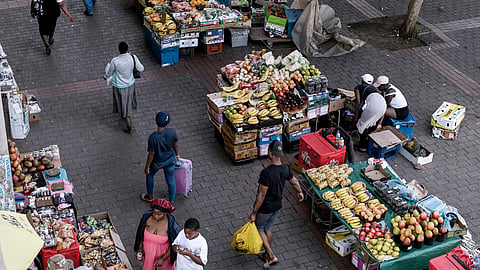Looming Trump presidency and growth concerns add South Africa’s Policy Uncertainty
South Africa's Policy Uncertainty Index surged to 65.7 in Q4, reflecting fears about sluggish economic recovery and global trade shifts under US President-elect Trump. Economic growth remains below targets, with GDP up only 0.4% in 2023's first nine months. Experts urge decisive domestic reforms, including energy and water sector overhauls, to counter rising global and local uncertainties. The rand's decline highlights vulnerabilities as global risks weigh on South Africa's prospects.
Sign up for your early morning brew of the BizNews Insider to keep you up to speed with the content that matters. The newsletter will land in your inbox at 5:30am weekdays. Register here.
The seventh BizNews Conference, BNC#7, is to be held in Hermanus from March 11 to 13, 2025. The 2025 BizNews Conference is designed to provide an excellent opportunity for members of the BizNews community to interact directly with the keynote speakers, old (and new) friends from previous BNC events – and to interact with members of the BizNews team. Register for BNC#7 here.
By Ntando Thukwana
___STEADY_PAYWALL___

